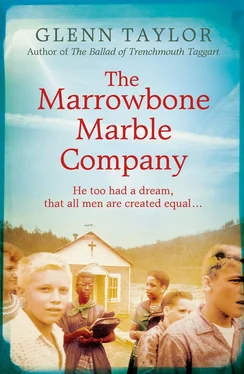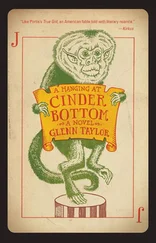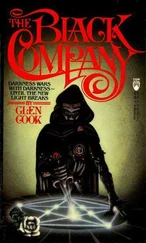H E HAD JOINED THEMarine Corps.
On December 10th, Ledford had walked into the recruiting station with a birth certificate altered by a Mann Glass secretary for a fee of five dollars. In the station’s filthy bathroom he’d pissed in a test tube. Passed his physical. He was sent to Parris Island, South Carolina, where he found the weather utterly suitable to his demeanor. He watched the ocean any chance he got. He followed every syllable his drill instructor spat at him, as if the man was God himself. Ledford thrived on discipline. He got a reputation as a hard charger who didn’t shoot the breeze.
When the men were issued their 782 gear, Ledford felt that old, joyous feeling from childhood Christmases. He loved his M1, and in no time he could fieldstrip and reassemble it like most never would. He grew to love the strain of calisthenics, whether at 0500 or midnight under floodlights. Drills became second nature. Hand-to-hand combat with short blades, plunging fixed bayonets into dummies—these acts were honed to reflex.
Ledford earned the designation of Sharpshooter on the rifle range. Even at five hundred yards, his targets came back Swiss cheese.
He smoked and played hearts with the other men, finding a peace in card playing he’d never lose. He traded insults, dimes, and nickels most often with a hard Mac from Chicago named Erminio Bacigalupo.
Erm, they called him. Nobody could tell whether Ledford and Erm liked or hated each other. In truth, neither could the young men themselves.
Ledford wrote to Rachel twice a week.
Nights, he slept like the dead.
Once, drunk on his ass against the barracks wall, Ledford’s drill instructor, an old Devil Dog from Alabama, had let his guard down. He’d seen action in the Great War. “Enemy’ll break, but only if you cut him,” he said. Ledford and Erm were the only men in listening distance. “My CO taught me that. What you do is git inside their tent while they sleep in, cut one’s thoat and leave the other one to find him at sunup.” His words ran together. His eyes might have welled up. “Must’ve done four or five Kraut boys thataway at Belleau Wood.” He fell asleep, then woke up. He looked at Ledford and Erm like he’d never seen them before. “Take a picture, why don’t you, you sons of a fuckin whore,” he said. “It’ll last longer.”
In May, Ledford had boarded a troop train to San Francisco and seen the sights and then walked up the zigzag incline of the ten-thousand-ton transport ship. Aboard the Navy’s vessel, sleep came interrupted, just as it would in New Zealand and in Fiji. A knot formed in the intestines. On August 7th, that knot came up the windpipe and nearly choked Ledford as he jumped over the side of the landing craft into the surf. He waded to the mud-colored sand of what they were calling Beach Red. He crossed it at a jog with the rest of his battalion. They could scarcely believe the quiet. It unsettled Ledford, and as he came to the jungle’s edge, the knot broke loose, and he threw up the smallest bit of bile before swallowing it down again.
Back on the beach, palm trees grew as high as Mann Glass chimney stacks. They curled like fingers, waving the men inland with the wind.
This was Guadalcanal. The enemy was not to be found. Only silence. And in that silence, Ledford finally felt the weight of the last six months. He knew now what that time meant, what it had amounted to. Ledford was not Ledford any longer. He was just another Mac with an M1, First Marine Division, First Raider Battalion, B Company.
Nothing would ever be the same again.
M EN SAT SHIRTLESS, their backs against the vertical wood slats of the pagoda. Henderson Field was a flat, hot wasteland of a place. A wide cut airstrip in the middle of a jungled Pacific island. Nervous Marines walked around the pagoda, looking sideways at those without a helmet or a shirt, those able to enjoy their smokes and never look at the sky above them or the choked forest on all sides.
Like every other Marine, Ledford had become convinced that the Navy had left them on the island to die, that food and ammunition would never again be ample. By day, he repaired bomb craters left in the airstrip’s grass and dirt runways. He leaned on his shovel and smoked and shot the breeze. He looked at that camelback ridge of mountains in the distance. From far off, it reminded him of home. But at night, in the jungle camp, the mosquitoes reminded him of where he truly was, and so did the Japanese fliers in the blackness overhead, dropping 250-pound bombs within spitting distance.
It was a Tuesday. Lunchtime with rations running short. Ledford slept alone on the dirt with his helmet over his face. He was dog tired and bug-bitten, from inside his ears to between his toes. He sat up, took out his Ka-Bar, and cleaned his fingernails. A skinny boy with a pitiful beard walked over from the shade of the pagoda’s overhang. “Ledford? You tryin to fry yourself?” His name was McDonough and he was from Chalmette, Louisiana.
Ledford didn’t answer or look up from his fingernails.
“You want to get somethin to eat?” McDonough blinked his eyes at two-second intervals. He was seventeen years old.
“I’ll eat with you, McDonough,” Ledford said, “if you promise not to talk with your mouth full.”
But McDonough was one of the nervous ones, and when they sat down inside, he talked with his mouth full of canned fish and rice for ten minutes straight. “Ain’t had that sinus infection a day since maneuvers in Fiji,” he said, after chronicling his lifelong battle with a clogged nose and headaches. “It’s like I been waiting my whole life to come breathe this air in the Pacific.”
Ledford didn’t even nod to show he was listening. At that moment, it seemed he’d do most anything to have steak and cake instead of fish and rice.
“My mother said I got the bad sinuses from her, and she got them from her daddy, and so on and so forth, back to my great grandfather, who stuck an old rotary drill up his nosehole one day and had at it until he killed hisself trying to unclog all of it.”
Ledford laughed a little with his mouth full of rice, but then he stopped, thinking such laughter might disrespect the dead.
“It’s all right,” McDonough told him, smiling. “It’s a story meant to be funny. But it is true.” He held up his hand to signify Scout’s honor or stack of Bibles both.
Ledford liked McDonough.
Back at camp that night, he looked over at the boy before lights-out. McDonough was flat on his bedding, looking up at the tent’s sagging roof. The rain that pelted there came harder and harder until the sound of it drowned all others. A roaring quiet. A rain not seen or heard by any American boy before, even one like McDonough, a boy from the land of the hurricane. He just lay there, his finger stuck up his nose so far it almost disappeared.
Ledford thought of Mann Glass and Rachel. Of steak and eggs and the sound of West Virginia rain on the cafeteria tin roof. His chest ached. His gut burned. A drip from the tent’s center point landed on his Adam’s apple. He stared up at its source, a tiny slit at the pinnacle. The rain roared louder, its amplitude unsettling. Ledford opened his mouth and called out, “Gully warsher boys,” but no one could hear him. He turned his head and watched McDonough dig for gold a while longer, then fell off to sleep.
In his dreams, there came a memory. He was a boy, and he fished on a lake with his daddy. The two of them sat in a rowboat, oars asleep in their locks, their handles angled at the sky. Father and son bent over their casting rods and spoke not a word. There was only stillness and silhouette, quiet as a field stump.
Twice Ledford was awakened by the sound of Japanese Zeros zipping overhead. The rain let up. The bombs came down. He jolted when they hit, and in between, he wondered about the dream. He could not remember any lake near Huntington, nor could he remember ever fishing with his daddy. And the quiet. Why had it been so quiet?
Читать дальше












